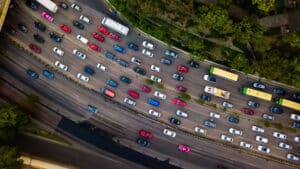Hornbach and resourcify: a partnership to achieve ambitious recycling goals through digitisation
Hornbach stores generate different types of waste, each with distinct recyclable and recycling profiles. To facilitate coordination and simplify the complex waste disposal processes, Hornbach began operating its own internet-based recycling portal in 2015. But this system soon reached its limits. Hornbachs’s requirements for waste and recyclables management were growing too quickly. The company’s own recyclables storage, sorting, direct sales and warehouse management had to be administered. “We were looking for an agile partner who could reliably map the new system across Europe and do so completely digitally,” says Andreas Back, Head of Quality Management/Environment & CSR. They found this partner in Resourcify.
How Hornbach AG revolutionized its waste disposal processes
“Hornbach and Resourcify share a vision of a fully digital, automated recyclables management that radically reduces environmental departments’ workloads and creates transparent, legally compliant and audit-proof processes,” says Felix Heinricy, CCO at Resourcify. The solution lays in a modular concept. Based on the Resourcify software, the new Hornbach Recycling Portal 2.0 digitally centralizes everything in one place: simple administration and accounting, as well as recyclables and waste reporting. “The implementation of Resourcify’s digital waste and recyclables management system at Hornbach went quickly and smoothly, especially considering the scale of the project,” says Back. Every step of the recycling process is documented and organised reliably and digitally, from the separation of waste fractions at collection points to the commissioning of waste disposal partners and their feedback – through to invoicing and reporting.

The success of streamlining waste disposal and recycling
Hornbach currently uses the Resourcify software to fully manage more than 190 collection points and more than 70 waste disposal companies across six European countries in a legally compliant manner, using five different languages. Invoice verification, coordination of waste disposal companies and manual claims are no longer necessary, which leaves more time and resources to organise the separation and sorting of recyclables in Hornbach’s stores. It also makes time to train and motivate employees on the issue, meaning recycling goals can be achieved much faster and more efficiently. Digitisation has put Hornbach in a stronger position than ever to play its part in environmental protection and sustainability. The company sets an example of how taking responsibility for the proper disposal and recycling of its own waste materials makes its business model fit for the future.
IMPACT MEASUREMENT
- GHG emissions reductions
- Landfill diversion
- More recycled materials
- Incineration diversion
- Waste reduction
IMPACT VISION 2030
- Enabling a Zero-Waste Future
- Transform Waste Management Into a Circular Economy
COLLABORATION





